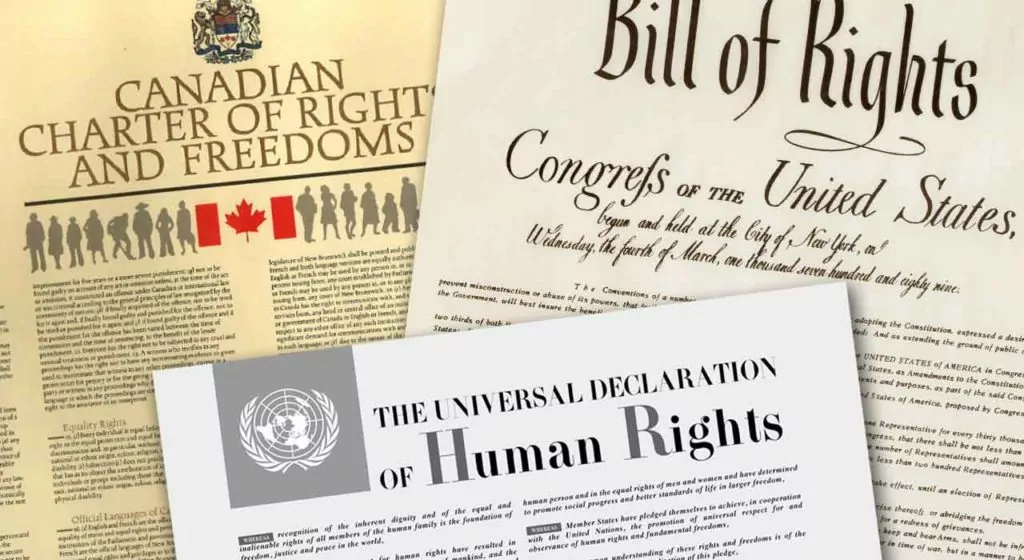As Christians we understand that our rights come from God. For example, our right to life comes from God’s prohibition against murder – no one has a right to kill me. Our right to equality – to fair treatment – comes from our understanding that we are all made in God’s image (in what other sense are we equal?) and also from God’s call not show favoritism to the rich or poor (Leviticus 19:15, Ex. 23:3, Deut. 16:19, James 2:9) or partiality to any (Deut. 1:16-17, Proverbs 28:21, and etc.).
But the secular world also speaks of rights. So on what basis do they make their claims to there being universal human rights? According to unbelievers, why do we have human rights? What reasons can they give? R. Albert Mohler, in a 2014 address at BYU, explained that the secular case for human rights can only stand so long as no one asks those questions.
The United Nations Declaration of Human Rights was adopted in 1948, fresh after the horrors of World War II. It was adopted in a spirit of hope and desperation. The French intellectual Jacques Maritain, one of the leading Roman Catholic philosophers of the century, was one of the drafters of the statement. That Declaration is now cited as the definitive statement of the modern affirmation of human rights. The Declaration affirms that all humans possess “inherent dignity” and states: “All human beings are born free and equal in dignity and in rights. They are endowed with reason and conscience and should act towards one another in a spirit of brotherhood.”
That is an eloquent statement indeed, but upon what does it rest? Maritain saw the problem. In his words, “We agree upon these rights, providing we are not asked why. With the ‘why’ the dispute begins.” And the dispute has never ended…. If we are biological accidents – just another primate – why should any individual human life matter? And why should we respect an abstraction called human rights? ….There is no secular ground that can support and defend human rights.
The full 26 minutes speech can be viewed below











